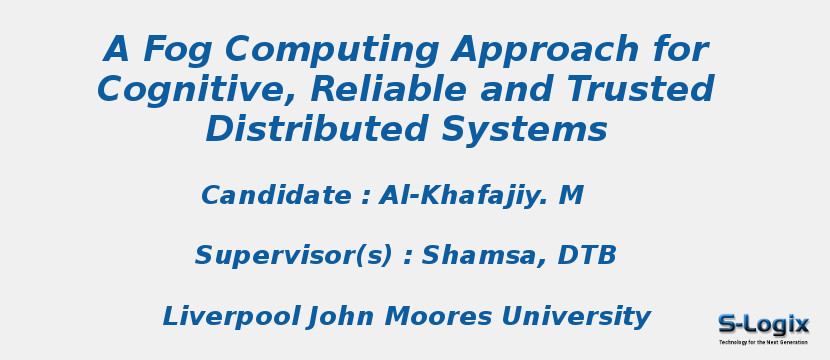Research Area: Fog Computing
In the Internet of Things era, a big volume of data is generated/gathered every second from billions of connected devices. The current network paradigm, which relies on centralized data centers (a.k.a. Cloud computing), becomes an impractical solution for IoT data storing and processing due to the long distance between the data source (e.g., sensors) and designated data centers. It worth noting that the long distance in this context refers to the physical path and time interval of when data is generated and when it get processed. To explain more, by the time the data reaches a far data center, the importance of the data can be depreciated. Therefore, the network typologies have evolved to permit data processing and storage at the edge of the network, introducing what so called fog Computing. The later will obviously lead to improvements in quality of service via processing and responding quickly and efficiently to varieties of data processing requests.
The proposed algorithms for FRAMES and COMITMENT have outperformed the competitive benchmark algorithms, namely Random Walks Offloading (RWO) and Nearest Fog Offloading (NFO) in the experiments to verify the validity and performance. The experiments were conducted on the performance (in terms of latency), load balancing among fog nodes and fogs trustworthiness along with detecting malicious events and attacks intheFog-2-Fog environment. The performance of the proposed FRAMES’s offloading algorithms has the lowest run-time (i.e., latency) against the benchmark algorithms (RWOand NFO) for processing equal-number of packets. Also, COMITMENT’s algorithms we re able to detect the collaboration requests whether they are secure, malicious or anonymous.The proposed work shows potential in achieving a sustainable fog networking paradigm and highlights significant benefits of fog computing in the computing ecosystem.
Name of the Researcher: Al-Khafajiy, M
Name of the Supervisor(s): Shamsa, DTB
Year of Completion: 2020
University: Liverpool John Moores University
Thesis Link: Home Page Url
